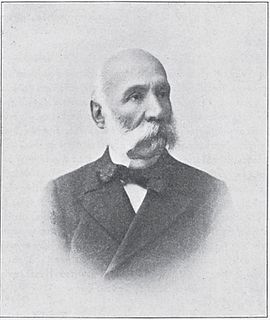The Greens of Andorra is a green political party in Andorra.
The Democratic Party is a center-right party in Bulgaria led by Alexander Pramatarski. The party is a member of the European People's Party (EPP).

Parliamentary elections were held in Hungary on 7 April 2002, with a second round of voting in 131 of the 176 single member constituencies on 21 April. Although Fidesz remained the largest party in the National Assembly despite receiving fewer votes than the Hungarian Socialist Party, the Socialist Party was able to form a coalition government with the Alliance of Free Democrats.

General elections were held in El Salvador on 20 March 1994, with a second round of the presidential elections taking place on 24 April. Armando Calderón Sol of the Nationalist Republican Alliance won the presidential elections, whilst his party also won the legislative elections. Voter turnout was 50% in the first round of the presidential elections and 45.5% in the second, whilst it was 53.1% for the legislative election.

Folketing elections were held in Denmark on 11 April 1924. The result was a victory for the Social Democratic Party led by Thorvald Stauning, which won 55 of the 149 seats. Voter turnout was 78.6% in Denmark proper. In the Faroe Islands constituency there was only one candidate, who was returned unopposed.

Folketing elections were held in Denmark on 24 April 1929, except in the Faroe Islands where they were held on 29 May. The Social Democratic Party remained the largest in the Folketing, with 61 of the 149 seats. Voter turnout was 79.7% in Denmark proper and 58.0% in the Faroes.

Folketing elections were held in Denmark on 3 April 1939, except in the Faroe Islands where they were held on 19 April. They followed a dissolution of both chambers in order to call a referendum on changing the constitution. The referendum was held on 23 May but failed due to a low voter turnout. The result of the elections was a victory for the Social Democratic Party, which won 64 of the 149 seats. Voter turnout was 79.2% in Denmark proper and 47.8% in the Faroes.

Folketing elections were held alongside Landsting elections in Denmark on 21 April 1953, except in the Faroe Islands where they were held on 7 May. The Social Democratic Party remained the largest in the Folketing, with 61 of the 151 seats. Voter turnout was 80.8% in Denmark proper but just 20% in the Faroes.

Parliamentary elections were held in Iceland on 25 April 1987. The Independence Party remained the largest party in the Lower House of the Althing, winning 12 of the 42 seats.

Parliamentary elections were held in Poland on 8 September 1935, with Senate elections held a week later on 15 September. They were held under the April Constitution, drawn up earlier in 1935 by the Sanation movement, which structured the election rules in its favor. In protest, the election was boycotted by opposition factions, and voter turnout was only 45.9%, the lowest in the history of the Second Republic.

General elections were held in Belgium on 5 April 1925. The result was a victory for the Belgian Labour Party, which won 78 of the 187 seats in the Chamber of Representatives. Voter turnout was 92.8% in the Chamber election and 92.7% in the Senate election.
Parliamentary elections were held in Bulgaria on 19 April 1997. The result was a victory for the United Democratic Forces, which won 137 of the 240 seats. Voter turnout was 62.9%. Following the election, SDS leader Ivan Kostov became Prime Minister.
Folketing elections were held in Denmark on 25 April 1876. The Liberals won a majority, whilst voter turnout was around 48.6%.

Parliamentary elections were held in Greece on 7 April 1885. Supporters of Theodoros Deligiannis emerged as the largest bloc in Parliament, with 170 of the 245 seats. Deligiannis became Prime Minister on 1 May.

Parliamentary elections were held in Greece on 16 April 1895. Supporters of Theodoros Deligiannis emerged as the largest bloc in Parliament, with 150 of the 207 seats. Deligiannis became Prime Minister for the third time the 11 June.

General elections were held in Liechtenstein on 29 April 1945. Following the "silent elections" of 1939, they were the first to use the new proportional representation system. The Progressive Citizens' Party won eight of the 15 seats in the Landtag, but remained in coalition with the Patriotic Union.

General elections were held in Portugal on 28 April 1918, following a coup by Sidónio Pais in December 1917. The elections were boycotted by the Democratic Party, the Evolutionist Party and the Republican Union, who had won over 90% of the seats in the 1915 elections.

General elections were held in San Marino on 28 August 1932. After it had risen to power over the country in April 1923, the Sammarinese Fascist Party was the only party to contest the elections, winning all 60 seats.
Folketing elections were held in Denmark on 26 February 1853. Christian Albrecht Bluhme of the Højre party remained Prime Minister after the elections, but after the government failed to win a vote on who would succeed King Frederick VII on 18 April by the three-quarters majority necessary, the legislature was dissolved and early elections were held in May.
Folketing elections were held in Denmark on 27 May 1853. Although elections had been held in February, the legislature was dissolved after the government failed to win a vote on who would succeed King Frederick VII on 18 April, resulting in early elections. Anders Sandøe Ørsted remained Prime Minister after the elections.











